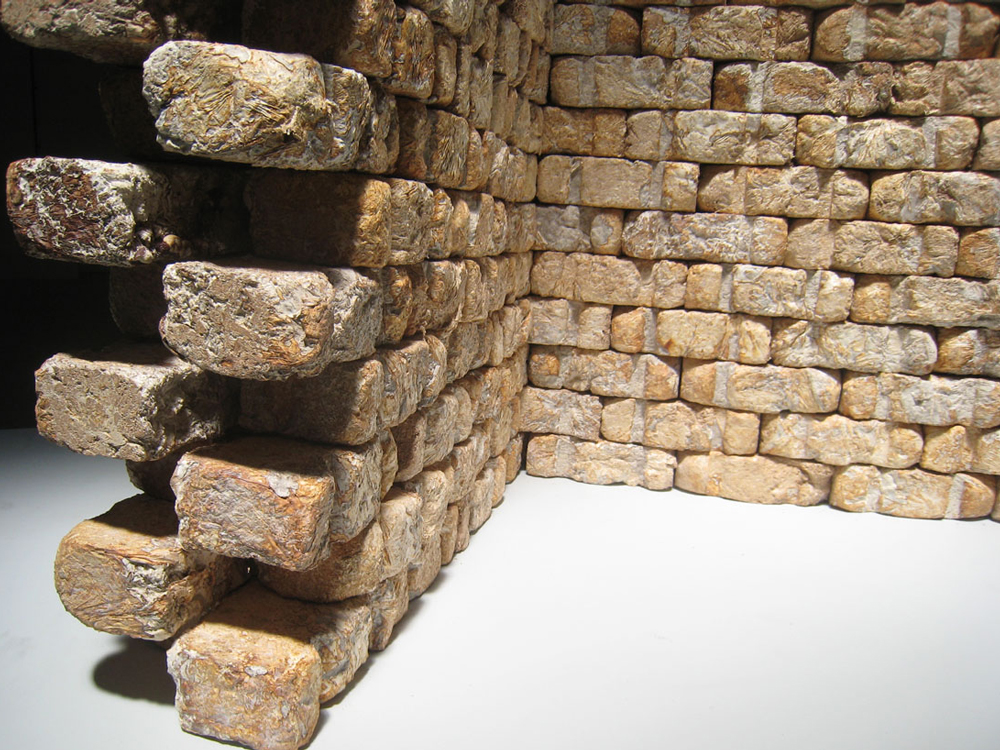Paul Stamets is a “visionary scientist” who advocates the power of mushrooms for just about everything — medicine, bioremediation, biodiversity. In this Omni Reboot interview he sits down with Phil Ross, an artist using fungal materials to use materials. “Welcome to the poetry of mycology,” Omni writes:
It’s kind of a shock when people see how mushrooms are grown in a laboratory, when most of their experience of them has been in the forest, where they’re used to all these organisms living together. And that question always comes up: why is this the way that we are growing mushrooms? I have to explain that this as much an artifact of our view of science as it is anything to do with the biology. You’re talking about that—this connection between the laboratory and the outdoors.
Stamets: That’s a really good point, Phil, because we’re really talking about interface environments. The mycelium of the species that I grow are edge-runners. They love to grow at the interface of two environments. As edge-runners, they’re at the leading edge of change. And so they’re morphing and changing the environment suitable to their own best interest, to their own progeny. They can condition environments: they run along these interfaces and edges to help themselves, and then in doing so, they bring, because of mutualism, and synergism, in their aftermath these mycelial networks create the food webs, to support downstream organisms that then give rise to microbial communities, that then give rise to the plants that create debris fields that feed the mycelium. So they are deterministically interested in their own survival by creating ecosystems, and these ecosystems typically are biodiverse, so they can withstand the impacts of change and ultimately lead to longevity of the species creating these environments.
There’s a book by Stanislaw Lem called Solaris, which has to do with a breakdown of communication between a global entity and specific human interests, and how they are trying to communicate with one another but don’t really have the tools to do so. What do you think is the best way to start to listen to the language of nature?
Stamets: We were once forest people. Not long ago, we were living intimately and dependent upon the forest ecosystems, and all the organisms that lived within. 23 primates consume mushrooms, and are able to identify poisonous ones from edible ones. I think this speaks volumes, that we’ve had this intimate relationship with nature that we have strayed away from over time. There has been a giant chasm created over time as we went away from the forest. And now we’re going full-circle, I think, understanding that the forest ecosystems that give us life and sustenance need to be re-explored. There are a lot of opportunities here for us to make new discoveries. You know, mushrooms have such strong attributes—it’s not unusual for humans to avoid that which is so powerful. Now with our modern scientific understanding, it’s time for us to re-explore the forest fungi, for many of the benefits they can give us.
If you become a mushroom person, your language tends to become a bit more refractive, or like a kaleidoscope. This question often comes to me: why do mushroom people talk like that? Can you do a little bit of a self-analysis or cultural analysis as to why mushroom people are always talking about everything but the subject at hand?
Stamets: We create words to have a language of communication. So much of the science of mushrooms is new, so we have to create new words or borrow words. I created the word “mycoremediation.” The rule of language is you want to make the language shorter and more efficient. So the word was “bioremediation with fungi.” Well, that became “mycoremediation.” To someone who’s never heard the word mycoremediation, well, what’s that? It’s bioremediation with fungi, but it’s a shorter word, and a shorter way to explain it. We are creating a new mycolanguage, where we’re coming up with concepts that are new to science, and we have to create the new language tools in order to communicate them. We are a little bit mycocentric in our interests, but this happens with any new emerging science. I think it speaks to the richness and the wealth of knowledge that we’re tapping into that is new to science.
Read the full interview between Paul Stamets and Phil Ross at Omni Reboot.
Check out our video clip from “The Growing Edge” with Paul on Evolver.TV:











